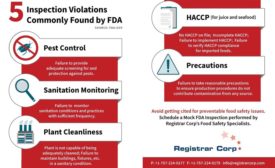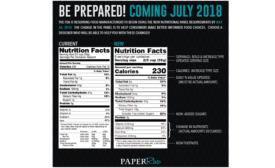Home » Keywords: » FDA regulations
Items Tagged with 'FDA regulations'
ARTICLES
It is essential for dairy companies to know where FDA’s authority ends
Read More
FDA’s top 5 most commonly cited food safety violations
FY 2017 top violations are almost the same as those cited in FY 2016 and 2015.
December 20, 2017
Never miss the latest news and trends driving the food safety industry
eNewsletter | Website | eMagazine
JOIN TODAY!Copyright ©2025. All Rights Reserved BNP Media.
Design, CMS, Hosting & Web Development :: ePublishing




